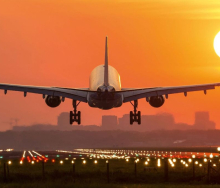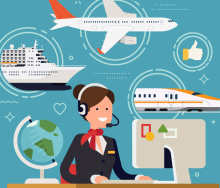Consolidation was already happening in the travel industry, but COVID-19 is going to fast-track what would have taken the next five years, and compress it into the next one-and-a-half to two years.
All industries go through stages of consolidation, and in the travel industry the impact of technology (factors like Airbnb, Google, corporate booking tools and simplified processes) will ensure that this continues into the future.
So why consolidation? Some companies have great balance sheets, some have not-so-great balance sheets. Some want consolidation because they have to sell, some do it because they do actually want to sell, or the shareholders want to exit.
Looking at how the industry will emerge from the pandemic on an international level, you’ll probably have three big brands: Expedia, the Booking.com Group, and C-trip. Then you’ll have large regional leaders like MakeMyTrip in India, Despegar in Latin America, and you have us (Travelstart) in Africa. There is already big cross-ownership between them, though Travelstart is still neutral. That is just going to continue for better or for worse; there’s no need to be emotional about it, it’s just the nature of the game.
South Africa is still such a strange animal when it comes to this industry. There’s a lot of home-based agents, which you don’t have in places like the US and Europe. But home-based agents still have a role to play, and there will be changes here as well. What’s different in this country is that government is such a big client, and I think there’s going to be a big change in government travel because technology is going to be a lot more important. Government will not only communicate more via technology instead of travelling, but technology will also change how and with whom government will book.
I also think COVID-19 is going to change, once and for all, how agents give a credit facility as an advantage. I think the days of credit are over, which is going to strengthen the industry. That might give a new lease on life to some players who were struggling before. It’s a very dynamic industry here, but I believe there will be continued consolidation and we will be very active in that space here.
We’re quite dependent on long-haul traffic in South Africa. With post-COVID-19 health and safety regulations, the delays, the sanitisation, and the checks, people are going to choose to travel once a year. I went on a long-haul trip once every six weeks in the past – there’s no way I’m going to go through that. So that is definitely going to have a tremendous impact on our industry.
I do think domestic is going to come back, but it won’t be as big as before for the following reasons: 1) People are used to working with Zoom now. Why on earth would you spend a whole day travelling for a meeting or two?
2) Fear. If anything, media and governments were hugely successful in scaring the living daylights out of the world’s population. Fear will deter people from travelling for a long time. With international travel, I think it’ll take years to recover.
Stephan Ekbergh, founder of Travelstart, is a former professional DJ and seasoned travel industry veteran. A solid entrepreneur and visionary at heart, he has worked and invested in a number of travel companies. In 1997 he founded Mr. Jet, Northern Europe’s first transactional online travel company, before launching the Travelstart portfolio in 1999 – a business he later successfully expanded internationally. In 2006 Travelstart South Africa was launched, as the country's first online travel agency and current market leader. In early 2010, Stephan sold the European arm of his business and, since then has spent his time expanding the business throughout Africa. Stephan’s passion is to contribute to establishing travel e-commerce in new markets and innovation. He and his wife have lived in Cape Town since 2004.















